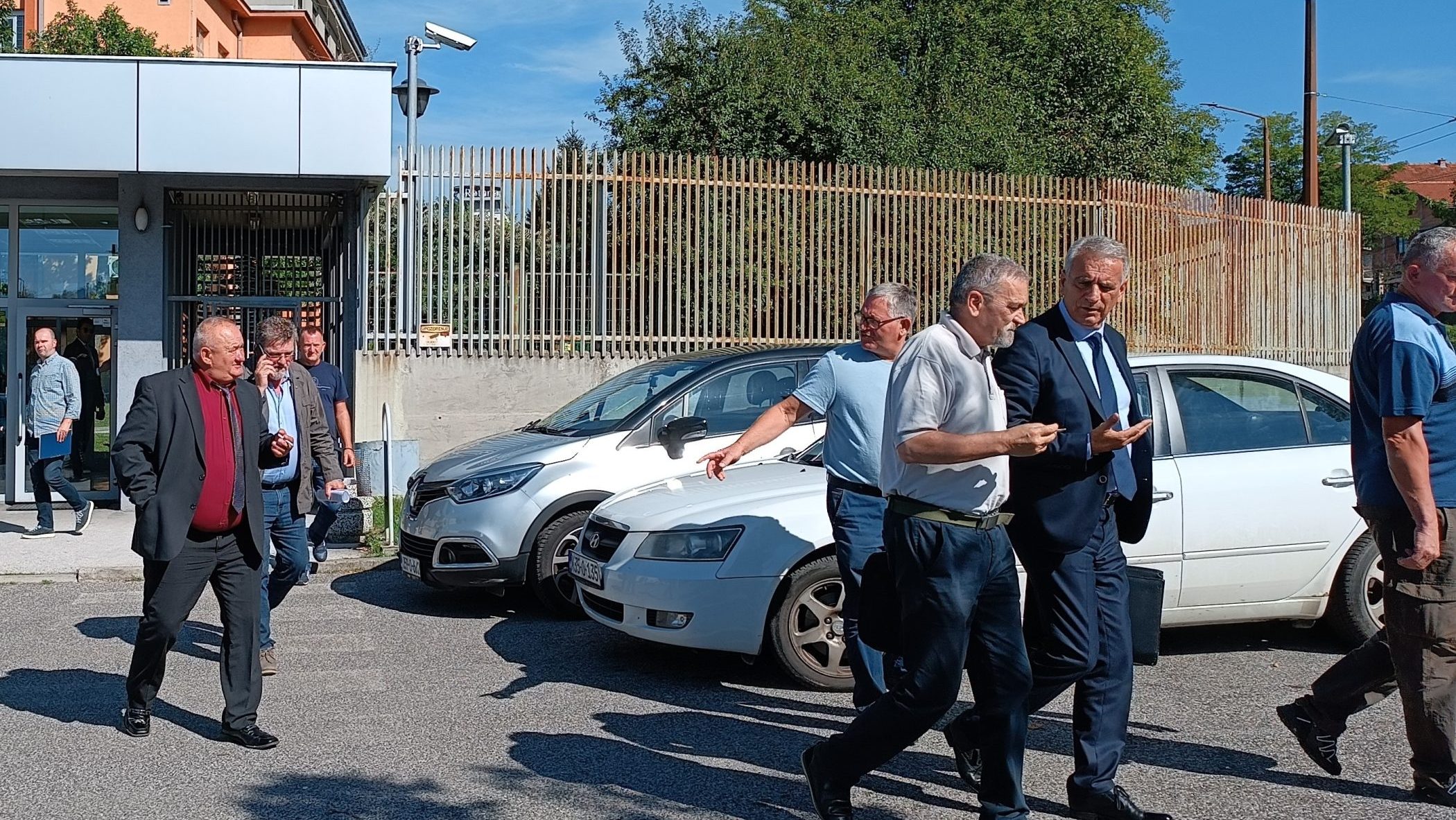This post is also available in: Bosnian
 Some of the defendants and their lawyers outside the court in Sarajevo. Photo: BIRN.
Some of the defendants and their lawyers outside the court in Sarajevo. Photo: BIRN.
The Bosnian state court appeals chamber’s verdict, which BIRN has seen, upheld the initial ruling convicting ten wartime Bosnian Serb Army soldiers of killing 24 Bosniak villagers in June 1992 after first forcing them to dig their own grave.
The second-instance ruling confirmed the sentences handed down when the ex-soldiers were first convicted in November 2023.
Ranko Balaban, Ratko Goranja, Nikola Reljic, Mirko Odzic, Ranko and Dragan Baltic were sentenced to 18 years in prison each. Rajko Karlica, Milenko Brcin and Milenko Babic were each given 15 years, while Miroslav Kapetanovic was sentenced to nine years.
In the first-instance verdict, the court established that, after the funeral on June 22, 1992 of a Serb soldier who had been killed, all the defendants, acting as an armed group consisting of more than 20 soldiers, headed to the villages of Alici and Ekici.
They forced Bosniak civilians to come out of their houses, threatening them with death, shooting and yelling at them, and then took them to the Serbian Orthodox cemetery, where they kicked and hit the men with rifle butts and their fists while the women and children were watching.
“They then separated around 90 men and took them to the Muslim cemetery, where they forced them to dig a grave and stand around it, after which the armed soldiers got an order to form a firing squad and start shooting,” said the presiding judge in the first-instance trial, Lejla Konjic Dragovic.
The second-instance verdict stated that the defence lawyers mainly contested the testimony of three witnesses who concluded a plea agreement with the prosecution
“It turned out that these are statements which are… complementary in terms of decisive facts, and point to a clear conclusion about the role of the accused,” the appeals chamber’s ruling stated.
It added that the defence teams “mostly selectively evaluated the statements of the witnesses who were heard, insisting on certain parts that are not of decisive importance, in contrast to the First-instance chamber, which looked at the witnesses’ statements as a whole, determining that they objectively presented their findings regarding the criminal incident”.
It also said that the three witnesses’ testimony provided “a reliable basis for establishing decisive facts”.
The second-instance verdict is final and cannot be appealed.


